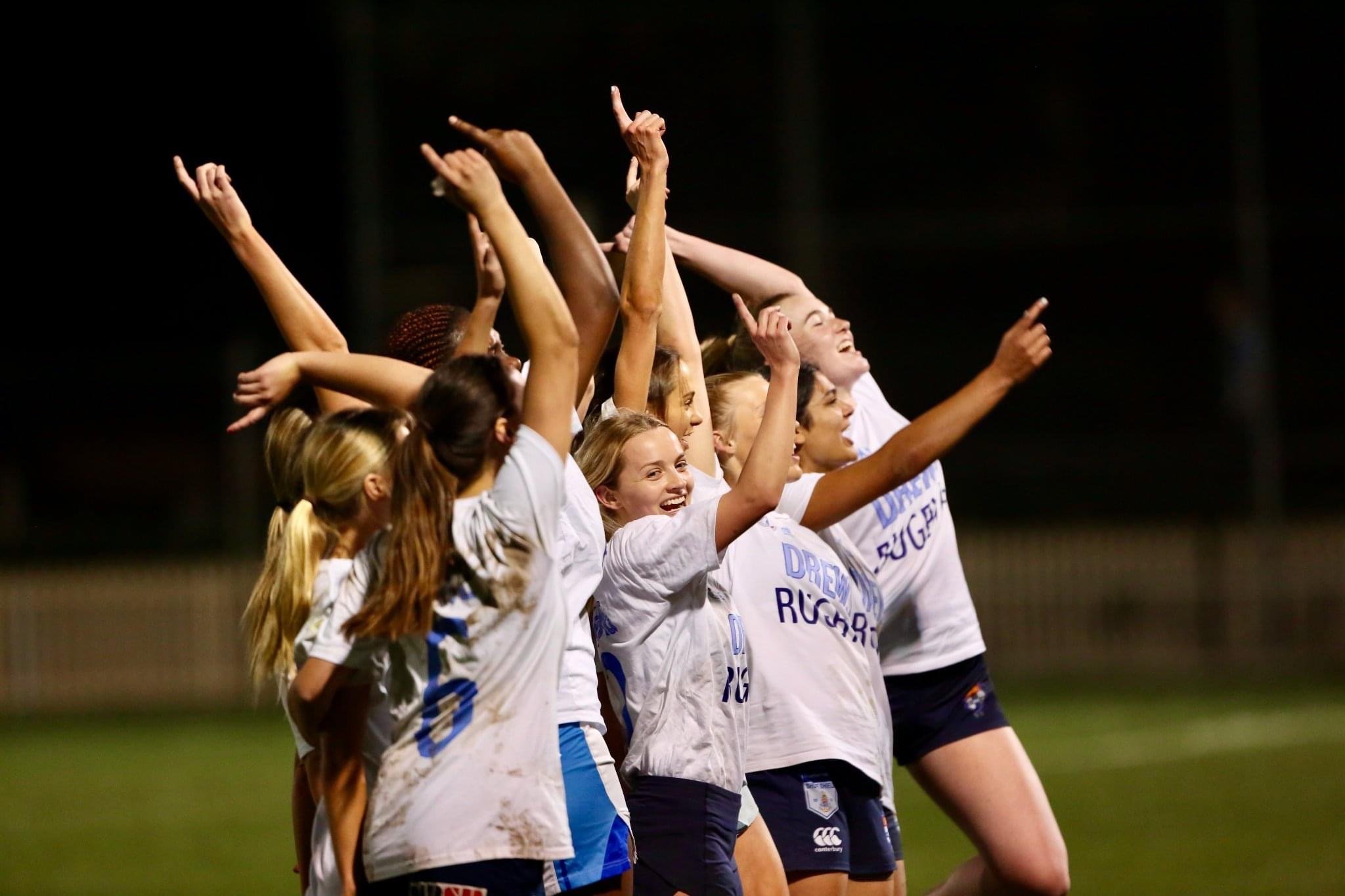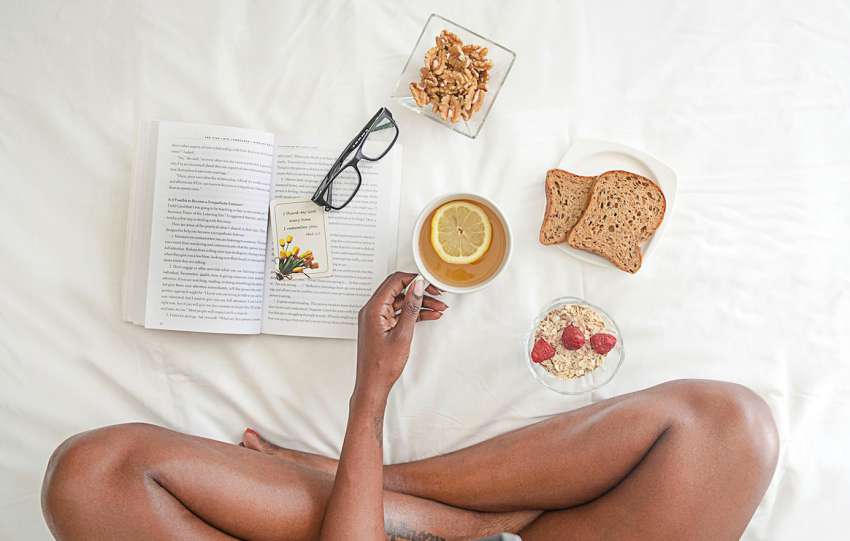Share This Article
Maya Smith reflects on 20 years of undergraduate women at St Andrew’s College
Growing up, I was fortunate to never feel like I had to fight to be equal with my brothers. My parents created a culture in our house where gender wasn’t a factor that had to be overcome in the mundane day-to-day expectations or achieving our greater aspirations. This culture was largely unspoken and presented itself through the everyday shenanigans. All of us were expected to hang out the laundry and equally be there for the heavy lifting Saturday morning chores. I’ve only truly begun to realise how privileged I was to grow up submerged in a culture where every opportunity my brothers had, was equally accessible to me.
As I grew up, gender started to have a much bigger impact on my life. I started to notice issues of gender in the media more and more. Just last year I sat down to watch Ms Represented as an eager high school student with my fingers crossed on getting into politics at Sydney University. The ABC documentary didn’t shy away from the vivid accounts of gender deafness, bombarding character judgements and women feeling the need to adapt themselves to fit within the male mould inside politics. While the recent election has resulted in more women than ever finding a place in the Cabinet with women now making up 38 per cent of the chamber. Additionally, policy projections are beginning to respond to the modern ‘needs and interests of women’. Yet as a young woman in politics, I still feel there is a long way to go. It’s hard not to hear the alarm bells ring when you sit down and listen to the personal struggles of inspiring and strong women in the political sphere. What can this mean for future generations of women? How real will this change really be? The spike in Australia’s international ranking from 57th to 37th of women in parliament is a big step forward. But what true implications will this have when there is an underlying culture that breeds sexism? And alarmingly, how effective will female representation in parliament be when these women represent one race, one socioeconomic status and one way of life.
Political coverage over the past couple of years has slammed the federal parliament for its toxic culture for women. With the Kate Jenkins report finding that one in three staffers in parliament experiences sexual harassment, it’s hard not to question whether we have truly gotten anywhere. Why are women continuing to feel like:
It can’t be ignored that in light of the recent election, a new page seems to have turned. One where women are refusing to sit in the back seat while men take the lead of this country. The strong public response for the 15 female candidates out of 17 who drove seat changes is undeniable. Looking ahead, we may finally be entering an era where the culture in parliament is driven by the interests of the public and rewritten to celebrate the voices and needs of Australian women.
I watch this change unfold from my college room where I am now enrolled at Sydney University. A big step onwards from sitting down only several years ago to unpack Ms Represented. But there is an issue of intersectionality simmering. It is easy to welcome the surge of female politicians, but how representative are they really? While women of colour have achieved incredible results in this election and the parliament is the most diverse yet. There are only 7% of candidates in the House who are represented by diverse and Indigenous MP’s. The wave of female teal independents simply reflects the lack of diversity in our parliament. We still have a long way to go.
Things aren’t perfect, but they’ve changed for the better and with the determined public interests to create a diverse Australian parliament we are on track for progression, unlike anything this country has seen before. Women are fed up with having our interests and needs determined for us. The 2022 election has illustrated a pivotal moment in the minds of the Australian public, embodied by Zoe Daniel’s campaign question that ignites a collective step forward.
‘If not us, who? If not now, when?’
The spectacle of the election can detach the meanings of these issues in our day-to-day lives. In this celebration of 20 years of undergraduate women I questioned whether my fourteen weeks of Drew’s life were enough to paint the entire picture. It would be easy to tell you about my experience. From seeing how valued women are in leadership roles to the tremendous respect given to our women representing Drew’s in Rosebowl and Palladian. If I’ve learnt one thing from Australia’s politics, it’s that gender equality measures put a foot in the right direction, but it won’t go anywhere unless there is a culture that backs it up. Reflecting on my time at Drews I simply asked myself, how does the culture reflect its progressive representation?
Stepping into Drews at the beginning of this year I did not know what to expect. I did not have pre-existing connections to any current or past students. What I did know was there would be amazing opportunities to develop my skills across the field and meet like-minded people. From day one, I have felt that women have the same opportunities to develop and thrive in the Drews environment. On the first day, the female-led executive team established the ongoing recognition that leadership at Drews is an open door to anyone who strives to make it their own. The systems in place, like the Fresher representatives having both a male and a female role, enable women to have access to fully participating in College life. But these explicit leadership roles aren’t for everyone. The Rosebowl and Palladian open the door for talented and driven women to represent Drews and continue to foster their leadership qualities in their respective fields. Outside of this, there are endless rewarding leadership opportunities for women to lead tutorials, be a part of the event committees and become pastoral care leaders. In theory, this increased gender equality is progressive but is merely performative if not met with a culture that reintegrates these values.
I turned to my experience as a spectator of Rosebowl and Palladian events which have been incredible to watch St Andrew’s women represent the college in such a strong way and showcase their valuable talent. In my first semester, witnessing Drews women take advantage of every opportunity, whether that is through sport, creative arts or leadership roles has been inspiring. The culture is a formation of not just the attitude and experiences of Drews women, but how Drews men react to female participation. During the first week of college fresher men showcased their overwhelming support for the netball by punctually showing up to each game covered in blue and white body paint, shirtless and ready to roar louder than the opposition’s crowd for the entirety of the sixty-minute game. It isn’t hard to recognise how valued women are felt at St Andrew’s. From the celebrations of victories in Netball and Hockey to solo vocal performances, tremendous pride is felt by the women taking part, and the spectators looking onwards. The college spirit on display is matched to any of the Rawson events. While there are several sports not yet integrated into the Rosebowl competition, the enthusiasm and determination of Drews women is a merit of the culture that has formed over the past 20 years and will continue forwards. An achievement for women at Drews is an achievement for the college as a whole.
Having the support of the entire college behind every woman performing or playing for Rosebowl and Palladian has created an environment where women at St Andrew’s know they are integral and valued members of the college. This extends beyond the sporting field where the women leading the students’ club in 2022 have worked tirelessly in their positions and have received continual admiration from the entire student and staff body. The current climate of leadership is inspiring for current and future students as women are not constrained from having a significant contribution to St Andrew’s College. I’m fortunate to recognise that the culture I grew up with is reflected here at Drews. One that’s progressive, supportive and values the development of women.


